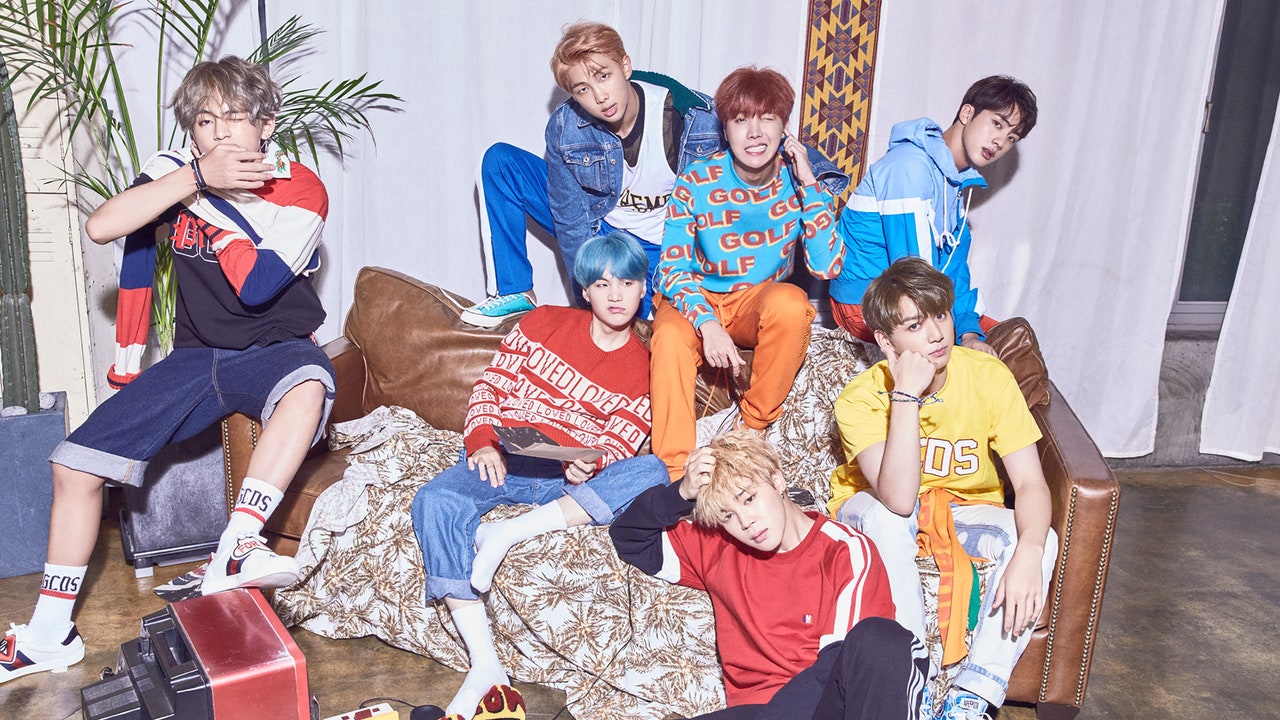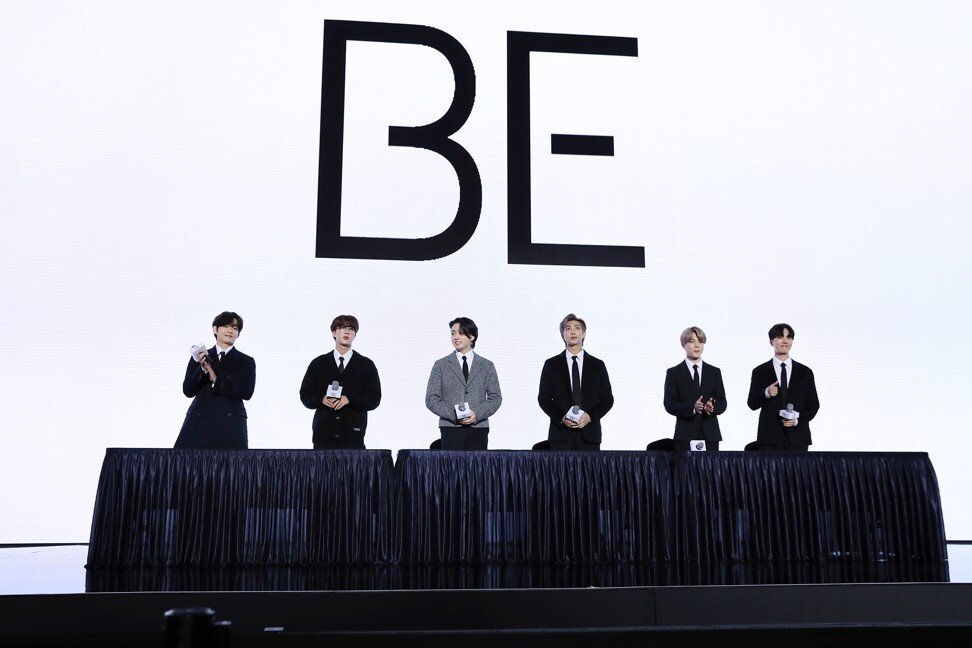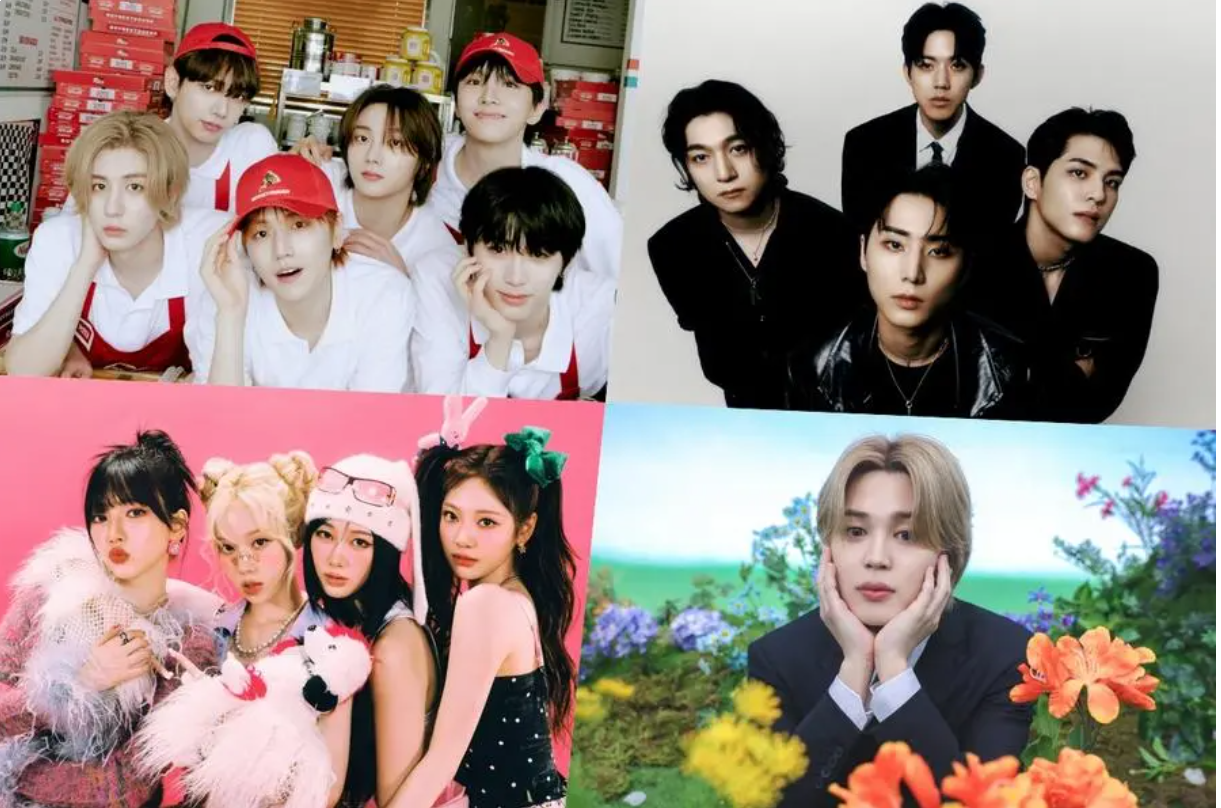With the meteoric rise of digital streaming services, there seems to be no reason to buy physical albums these days.
- Watch: Rosé And Bruno Mars Take 3rd Win For "APT." On "M Countdown"
- BLACKPINK's Rosé Announces Solo Comeback With Teasers For 1st Studio Album "rosie"
- BOYNEXTDOOR, DAY6, aespa, Jimin, And BLACKPINK Top Circle Weekly Charts
... But sales of K-pop albums have defied the trend. Last year, total sales of the 400 most popular albums reached 25 million. This year, the figure is expected to surge to 35 million, according to Gaon Chart, which tracks album sales in the country and overseas.

Gaon, which the Ministry of Culture, Sports and Tourism and the Korea Music Content Industry Association launched in 2010, is considered one of South Korea’s most credible album/streaming charts.
“According to our data, over 30 million albums were sold from January to October this year, but the number would certainly exceed 35 million by the end of 2020 thanks to BTS, which just dropped their latest album BE (Deluxe edition) on November 20," said Kim Jin-woo, head researcher at Gaon. "The septet usually sells more than 4 million copies of each album.”

K-pop flagship girl group BLACKPINK became another "million-seller" this year with their October release, "THE ALBUM" - their first full-length album after 4 years. But what are the rationales behind robust album sales?
The coronavirus pandemic which has put a hold on K-pop stars’ activities, including live concerts – has ironically contributed to the sales growth, industry experts say.

“The global health crisis has triggered a trend of ‘revenge spending’ among K-pop followers,” Kim said. “Due to the virus epidemic, they cannot go to concerts or actively participate in other fans' activities. So they have turned their eyes to physical albums as an alternative.”
Lee Gyu-tag, a professor of cultural anthropology at George Mason University Korea, said many fans also thought it was their “duty” to buy albums as a means of supporting their favorite stars.
“These fans believe they should not only appreciate the singers’ music, but also purchase more hard copies to help the stars expand their careers. Buying an album is part of a competition among the fans, who want their favored groups to outstrip their rivals in terms of sales and show their stars are more popular,” Lee said.
K-pop fans also prize the emotional value of the physical products that they can own, he added. For them, an album – which usually costs more than 20,000 won (US$18) – offers various photos of members along with other sought-after items such as posters. K-pop fans therefore often snap up more than one copy – sometimes hundreds – to collect different photos and get more receipts, which can be exchanged for “coupons” for a fan event.

To increase their chances to win a random draw for fan events and meet these stars face-to-face, the followers often have to splash out and get as many receipts as possible.
After bulk-buying and applying for fan events, the fans encounter a problem – what should they do with the albums? Some sell them on second-hand online markets, while others donate them to facilities such as orphanages “for a good cause”.
"With K-pop’s global ascent, album s ales in Korea and abroad will continue to rise for some time. But given that K-pop fan culture is everchanging, we will see how long the trend will last" - Lee Gyu-tag, a professor of cultural anthropology at George Mason University Korea.
But their contribution is often not very welcomed, as CDs may not be helpful for children who need different types of support. For this reason, some social workers have urged K-pop fans not to offer albums.
Knowing what some fans want from purchasing albums, an online shop even offered an option of “album not needed”. If a buyer chose this option, the seller would send the coupons for fan events to the buyers. A shop official said it added the option because so many customers bought albums just for such gifts and they threw the albums away.

Some criticize K-pop management companies for encouraging fans to buy excessive numbers of albums. But such marketing tactics may be inevitable for the companies.
“One of the biggest revenue streams for a K-pop label is album sales, which also affects the singers’ performance on the music charts,” Lee said. “So the companies always seek methods to boost them. Even outside Korea, numerous singers use a similar business tactic by giving out pizzas or hoodies to those who buy hard copies.” Both Kim and Lee predicted that the sales of K-pop albums would continue to rise for at least the next few years.
“The overall album sales go up when the top-tier acts lead the sales,” Kim said. “The sales have been steeply increasing since 2016, when BTS began selling a massive number of albums. From then on, a plethora of bands such as Wanna One and TWICE also started contributing to the sales growth."
"As of now, BTS is still hitting high notes and we have other acts like NCT and SEVENTEEN that also boast substantial selling power. They will play a pivotal role in the growth for years to come."
Lee agreed. “With K-pop’s global ascent, album sales in Korea and abroad will continue to rise for some time. But given that K-pop fan culture is ever-changing, we will see how long the trend will last.”






